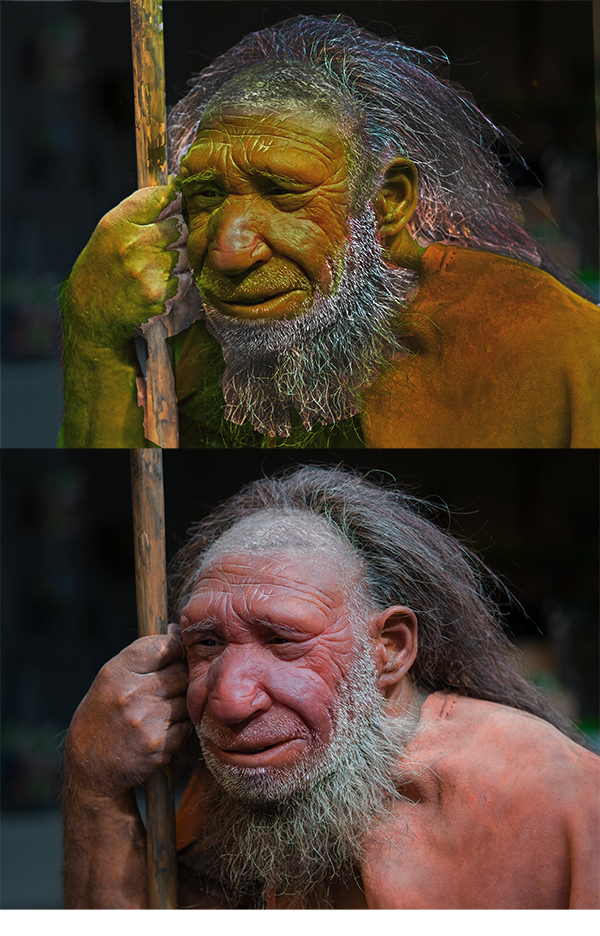A Conversation With John Anthony Capra of Vanderbilt University,
Q. Let’s begin with an indiscreet question. How did contemporary people come to have Neanderthal DNA on their genomes?
A. We hypothesize that roughly 50,000 years ago, when the ancestors of modern humans migrated out of Africa and into Eurasia, they  encountered Neanderthals. Matings must have occurred then. And later.
encountered Neanderthals. Matings must have occurred then. And later.
One reason we deduce this is because the descendants of those who remained in Africa — present day Africans — don’t have Neanderthal DNA.
Q, What does that mean for people who have it?
Neanderthal DNA has a subtle influence on risk for disease. It affects our immune system and how we respond to different immune challenges. It affects our skin. You’re slightly more prone to a condition where you can get scaly lesions after extreme sun exposure. There’s an increased risk for blood clots and tobacco addiction.
To our surprise, it appears that some Neanderthal DNA can increase the risk for depression; however, there are other Neanderthal bits that decrease the risk. Roughly 1 to 2 percent of one’s risk for depression is determined by Neanderthal DNA. It all depends on where on the genome it’s located.
Was there ever an upside to having Neanderthal DNA?
It probably helped our ancestors survive in prehistoric Europe. When humans migrated into Eurasia, they encountered unfamiliar hazards and pathogens. By mating with Neanderthals, they gave their offspring needed defenses and immunities.
That trait for blood clotting helped wounds close up quickly. In the modern world, however, this trait means greater risk for stroke and pregnancy complications. What helped us then doesn’t necessarily now.
Did you say earlier that Neanderthal DNA increases susceptibility to nicotine addiction?
Yes.
Q. Aside from the Neanderthals, do we know if our ancestors mated with other hominids?
We think they did. Sometimes when we’re examining genomes, we can see the genetic afterimages of hominids who haven’t even been identified yet.
